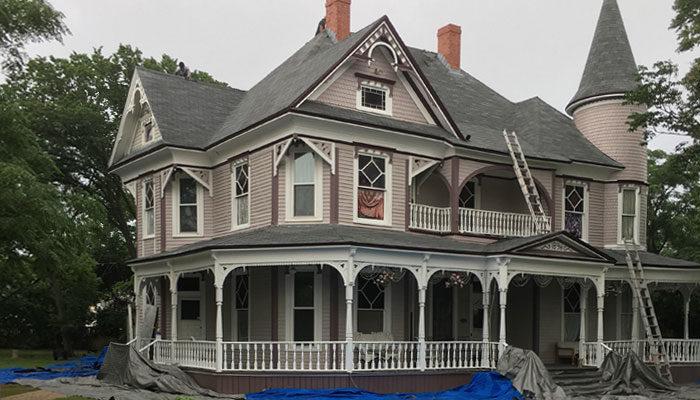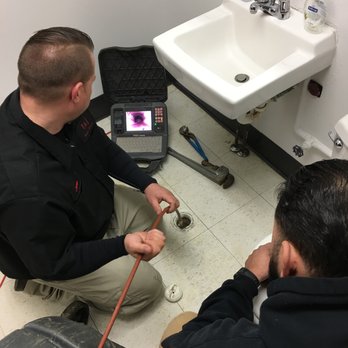
How to find a certified contractor by the Energy Star Program if you are looking to build an energy-efficient home. You have a variety of tools from the EPA that can help you locate contractors. You can also consult the EPA contractor recruitment tools if you are interested in the tax credit for HVAC systems that are energy-efficient.
ENERGY STAR Certified Homes
The ENERGY STAR Certified Homes program was developed in 1995. It has seen many modifications to meet code requirements and standard builders practices. The ENERGY STAR Certified homes today are a vast improvement over a home that was not labeled. For more information on the ENERGY STAR Certified Homes process, visit this website.
In addition to new construction and existing homes, ENERGY STAR certification has been awarded to manufactured homes and affordable housing. Homes certified as ENERGY STAR are built to be more energy efficient than average and are designed to save homeowners money. The certification is accepted by many state governments as well and housing finance programs. While not all homes will be eligible for ENERGY STAR Certification, ENERGY STAR homes meet or exceed strict standards.

ESVI Program requirements
The ESVI Program requirements are necessary if you wish to join the ENERGY STAR Verified HVAC Contractors program. The EPA, along with other energy organizations, are looking to find HVAC contractors who provide the best HVAC design and installation practices. Contractors who earn this credential have access to the best builders in the business and a marketing tool. Contractors who hold this credential are less likely to complain and more likely to sell premium products. Independent third-party oversight groups have been set up by the EPA to supervise and train contractors.
ESVI is based on the Air Conditioning Contractors of America's HVAC Quality Installation Standards. It verifies that contractors have met all the requirements and installed energy-efficient HVAC systems. This certificate is valid for one year and identifies a contractor's commitment to the highest level of energy efficiency. There are many other benefits that homeowners can enjoy. The ESVI program is a great investment for both the homeowner and the HVAC contractor.
Credentialing requirements
HVAC contractors must satisfy several criteria before they are eligible to work on homes certified with ENERGY STAR. The credentialing process includes a review of the contractor’s experience, credentials, as well as training. Contractors must have at least a basic knowledge of energy-saving HVAC equipment and know how to calculate it. These requirements are intended to lower energy consumption, improve comfort, and increase the durability of the home.
The EPA has outlined the training HVAC contractors should undergo to be eligible for this credential. This process is intended to give the client peace of mind that the home has met EPA standards for energy-efficiency. The final inspection of the project by Performance Point will determine if the EPA has met the program's requirements, which can take a few days or weeks. HVAC contractors can earn this credential and be trusted to install efficient systems.

Credit for tax
You can get a federal tax credit to help you save money on energy-efficient upgrades if you are looking for a new HVAC system. Energy-efficient HVAC systems may be eligible for the Residential Energy Efficient Product Credit. It can be worth up to $500. If you intend to upgrade, ensure that your system has the ENERGY STARr rating. Visit AHRI's website to check if the credit is available for your system.
Federal government also offers tax credits for HVAC contractors that use energy-efficient HVAC units. These credits may be deducted from your taxable income. Many local energy companies will offer rebates for Energy Star appliances. These incentives are available in many ways. You can save money by installing new HVAC systems. Visit the ENERGY STAR Rebate Finder if your area qualifies for one of these rebates. If you do not qualify, contact your local utility office or energy company to determine if rebates or credits may be available.
FAQ
Is a guarantee a service contract?
A service agreement is not a warranty. It is an agreement between two parties to exchange goods and services. In this case, the customer agrees to pay the cost of repair or replacement if the product does not perform satisfactorily. This type of contract is also known by the term maintenance contract.
Do I need a legal representative to sign my service agreement?
No. You don't need a legal representative to sign your service agreements. As a precaution, however, it is a good idea to appoint one.
Legal representatives are people who act on behalf of another person. If you are an entrepreneur, you may choose to have someone represent you professionally.
This could mean hiring a solicitor or accountant. Or it could simply mean appointing someone to look after your business interests.
In most cases, the client is responsible for appointing a legal agent. Sometimes, however the vendor hires a legal agent.
Legal representation in any case means that you are legally protected.
What is a service-contract agreement?
An agreement between two parties for the provision of services is called a Service Contract Agreement (SCA). The SCA specifies the services to be provided, their cost, time and effort required, who will pay for them, and when they should start. The agreement also outlines what happens to either party if it violates its obligations.
What does my SCA cover?
The scope of the work will be specified by your SCA, which will include how long it will take, what materials will be used, what equipment will be needed, and whether special permits will be required.
Is there any limit on how much money I can spend for the project?
No. No. You might be able to negotiate lower prices with the contractor.
Statistics
- (3) The contracting officer may provide for a contract price adjustment based solely on a percentage rate determined by the contracting officer using a published economic indicator incorporated into the solicitation and resulting contract. (acquisition.gov)
- Reasonable late fees go up to 25% per year on unpaid sums. (lawdepot.com)
- (1) Except as provided in paragraphs (a)(4) and (a)(8) of this section, if the estimated amount of the contract or subcontract is $10 million or more, the contracting officer shall request clearance from the appropriate OFCCP regional office before- (acquisition.gov)
- While we offer all our high-quality services at competitive prices, we know that many who need our services are on fixed incomes, so we offer a 10 percent discount for seniors and military members. (homeservicecontractorsinc.com)
- (d) Contractor disputes related to compliance with its obligation shall be handled according to the rules, regulations, and relevant orders of the Secretary of Labor (see 41 CFR60-1.1). (acquisition.gov)
External Links
How To
What should a contract of service include?
Service agreements (SAs) are essential for any business relationship. It defines what you want from each other, and how you will get it. The SA also details when and where each party should fulfill its contractual obligations.
The following are key elements for a successful SA
-
Both parties will agree to the scope of work.
-
Information about payment terms, including the start and end dates for delivery of goods/services.
-
The project price must be agreed.
-
Any additional costs such as VAT etc.
-
Whether there is anything else that needs to be discussed.
-
Who will take responsibility if there is an error in the job?
-
How disputes will be resolved.
-
What happens when one party breaks the contract?
-
What happens if there is a dispute
-
When will the contract become effective?
-
What happens if one party fails to perform?
-
What time do you need to pay your invoices?
-
Who pays for expenses such as travel?
-
Where the money is coming from.
-
What happens if the client changes his mind about the project?
-
What happens to the supplier if they don't show up.
-
Who is allowed to access the site during construction
-
What happens if the customer cancels the project.
-
What happens if a product is not as described?
-
What happens if the supplier refuses to sell parts?
-
What happens when the equipment stops working?
-
What happens if the project is delayed?
-
What happens if work isn’t completed in the timeframe agreed upon?
-
What happens when the project's quality falls below what you expected?
-
What happens when the cost is too high?
-
What happens to the materials if they are not delivered on-time?
-
What happens if your material arrives damaged?
-
What happens if the products aren't up to standard?
-
What happens if the job gets cancelled before it is completed?
-
What happens to the company if it goes bust?